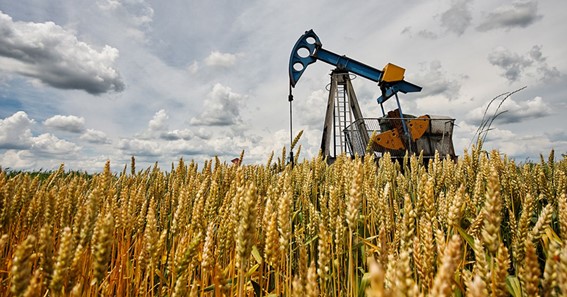Trading commodities is a common practice that has evolved in the past centuries. During olden times, commodities such as cotton, cattle, grains, oil, etc., were primarily traded among people and various communities to meet their requirements. Even today, some people and countries trade these items; however, these days, anyone can trade in commodities to make considerable profits, besides trading in traditional stocks and other derivatives tools. However, before you invest in commodities, you must know about commodity tips today and other related information.
click here – Learn SEO To Boost Your Marketing Campaign
What is a Commodity?
To put it simply, a commodity is any raw material that has a physical form and can be purchased or sold and are interchangeable with other similar commodities. Most traditional examples of commodities are wheat, soybeans, grains, corn, other food items, cattle or other stock animals, oil, gold, cotton, etc.
Furthermore, investing/trading in commodities is ideal for expanding your portfolio with assets compared to stocks, gold, etc. Most traders or investors can purchase a commodity directly in the spot (cash) market or via the derivatives market by trading in futures and options.
Types of Commodities
Generally, commodities are categorised into four major groups as follows:
- Energy Commodities
Basically, energy sources such as natural gas and oil have a vital role in powering the globe and are utilised for transportation, factories, household works, and more. Other examples include coal, electricity, uranium, ethanol, etc.
- Metal Commodities
Metals such as iron, copper, aluminium, nickel are utilised in construction and manufacturing, while platinum, silver, and gold are utilised for jewellery-making and investment purposes.
click here – MetaTrader: the fundamental concepts of how trading platforms operate
- Agricultural Commodities
Commodities like farm livestock and crops that supply food and accord to other industries such as the textile industry are another vital category. Some examples of agricultural commodities are cocoa, wheat, soybean, sugar, cattle, and hogs.
- Environmental Commodities
This group mainly covers renewable energy certificates, white certificates, and carbon emissions.
Some commodities are also categorised as hard and soft commodities. Hard commodities are natural resources that are disengaged from the ground or mined. These would include copper, oil, and gold. The other kind is soft commodities, including agricultural items such as sugar and cotton or farm-raised livestock. However, if you’re planning to invest in commodities, ensure to stay updated with an MCX commodity trend today and stay ahead in the market.
Why Trade Commodities?
For some investors who are attempting to diversify their portfolios, commodity trading is an excellent option. Check out some factors of commodity trading for beginners:
- Trading opportunities:
As commodity rates are usually pretty volatile, this favours the traders by opening up multiple trading opportunities. Some traders can also profit off upward and downward price movements.
- Leverage:
When you become a trader, you get to handle substantial amounts of money with tiny deposits by employing ‘leverage’. This could possibly assist you in boosting your gains, although it’s vital to keep in mind that it may also lead you to losses.
- Diversification:
Even though commodities have little to no connection with traditional classes of assets like bonds or stocks, usually commodities increase during periods that see a fall in bonds and stocks, which can further help reduce portfolio risk for traders.
- Protective hedge against inflation:
Due to unforeseen event risks like natural disasters, economic crises, and wars can broadly impact the economy adversely, and currencies can also lose buying power during periods of inflation. On the contrary, commodities, which usually tend to rise during such cases, can protect you by acting as a barrier against such events.
Thus, this guide will help you figure out how to begin with commodity trading.
